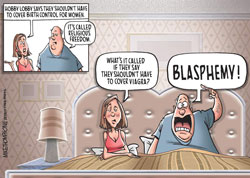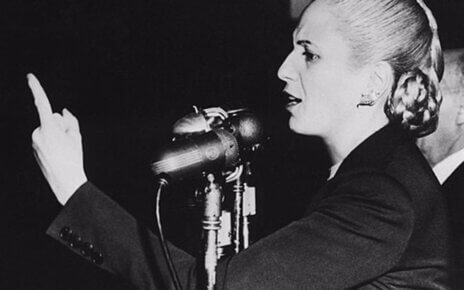Will the New Pope Change International Relations?
The white smoke has risen and Roman Catholics around the world have a new spiritual leader, Jorge Mario Bergoglio, former archbishop of Buenos Aires and now dubbed Pope Francis I. He has a political history that is closely associated with his homeland of Argentina. The New Pope’s connection to Argentine history dates back to the era known as the Dirty War and continue right up to the current president Cristina Fernandez de Kirchner.
Some of the more recent episodes of Francis’s entanglement with Argentine politics took place during the regime governments of the Kirchners, including Nestor Kirchner and his presidential successor, Cristina Fernandez de Kirchner. During this time, Francis I was then Archbishop of Argentina’s biggest and most powerful providence, Buenos Aires.
The relationship first became rocky when Bergoglio gave a homily, on a national holiday, with a message that indirectly criticized Nestor’s government for his handling of the financial crisis. The following year Nestor did not attend the same homily, which was cancelled. Hence forth Nestor Kirchner and Bergoglio were considered political rivals.
Senior political science major Lexi Todd views the politically turbulent episode, “The Kirchner’s felt that the Catholic Church did not pay them enough credit for lifting Argentina out of one of the worst economic crisis that the country had ever faced. In 2007, Cristina became President and she clashed with Bergoglio over social issues such as gay marriage and abortion.”
The 2007 social issues episode that Todd referred to happened during first term of Argentina’s popular current president and Nestor Kirchner ’s wife, Cristina Fernandez de Kirchner. In 2007, she tried to pass legislation which would give gay couples equal rights with straight couples, in areas such as marriages, money transactions, and adoptions.
Argentina is the tenth most populous Catholic country in the world. Accordingly, the Church is a strong institution and by its teachings is strictly against gay marriage. It fell to Archbishop Bergogilo to act on the church’s behalf and try to block the legislation.
The political storm that followed erupted in anti-gay marriage protests around the country aimed largely at Cristina Fernandez de Kirchner because of her support of same-sex marriage. Bergoglio became the face of the movement and moved against the legislation. Bergoglio said, “Let’s not be naive, we’re not talking about a simple political battle; it is a destructive pretension against the plan of God.”
Bergoglio continued, “We are not talking about a mere bill, but rather a machination of the Father of Lies that seeks to confuse and deceive the children of God.”
Junior political science student Liz Anderson saw the motivates for Francis to be more than just a call from God but also a political calling. She explained, “Pope Francis went out of his way back in 2007 to battle publicly with Kirchner in order to generate more press/publicity for himself within the Vatican, especially considering the age of Pope Benedict XVII at the time and the fact that Francis was the runner up in the last selection of pope, I am sure the thought of being the future pope had not strayed from his mind.”
Despite their differences Archbishop Bergoglio was willing to neogiate. However, the other Argentine bishops opposed the idea and the enactment of such a proposal was quickly shot down. The bill was eventually passed in 2010, marking a defeat for the church and victory of a political revival.
However the 2010 passage of the equal rights bill and Archbishop Bergoglio alleged compromise are not the most volatile accusation raised against the new Pope. The most serious claim dates back before Jorge Bergoglio was Archbishop to the time of Argentina’s Dirty War.
Bergoglio was a high ranking Jesuit official during the Dirty War. It was a time of state sponsored terrorism between 1973-1982 when the Argentine military government tortured thousands of civilians, including guerilla militants, trade unionists, left-wing sympathizers, and students. 30,000 people went missing during this time, now referred to by Argentines as “Los Desaparecidos.”Two of the Los Desaparecidos, Orlando Yorio and Francisco Jalics, were Jesuit priests who were kidnapped, drugged, and tortured by the Argentine Navy. Both priests believed that Bergoglio, at the time, handed them over to the Argentine Navy to cleanse the church of leftist sentiment.
The accusations were substantial enough that in 2005 an Argentine human rights lawyer set up a lawsuit on behalf of the priests accusing Bergoglio of enabling the Military Junta’s Dirty War; eventually the charges were dropped but the accusations still remain potent. These accusations of clergymen abetting the military junta weren’t just confined to Bergoglio through.
When Bergoglio was elected head of the bishops in Argentina in 2005, the church was dealing with the scandal of Rev. Christian von Wernich, a former chaplain of the Buenos Aires police, who was also accused of aiding in the handing over, questioning, torture and death of political prisoners who disagreed with the military dictatorship. Church authorities handled Father von Wernich’s situation by placing him in a parish in Chile under a false name, but eventually he was brought back to Argentina and put on trial. In 2007, he was found guilty on seven counts of complicity in homicide, 40 counts of kidnapping, more than 30 of torture, and was sentenced to life imprisonment.
During his time as Archbishop between 2005 and 2011, Bergoglio disappointed human rights groups by not issuing a formal apology for the actions of the church during the Dirty War. Despite this, Bergoglio did do much to improve life for the poor during this time as head Bishop of Argentina. However noble though, his efforts put him at odds again with current president Cristina Kirchner.
As Professor Kenneth Mitchell of the Political Science Department explains, “He and Cristina had another ‘falling out’ – the Pope agrees with her ‘the poor should come first’ views (he hates globalization and neoliberalism) but disagrees with her (shall we say) ‘comfort with governmental corruption.”



